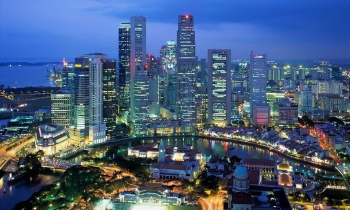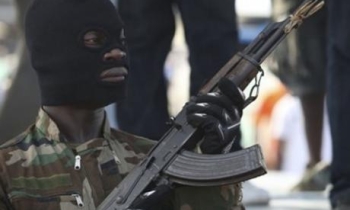The high-profile trial of three former police officers accused of involvement in the 2000 assassination of journalist Heorhiy Gongadze has been adjourned till January 23. The Kiev Appeals Court announced the decision after one of the defendants – former Interior Ministry officer Mykola Protasov – reportedly felt faint in the courtroom.

Protasov and his two co-defendants – Valeriy Kostenko and Oleksandr Popovych – face murder charges. Their former superior, police General Alexei Pukach was accused in in absentia and put on the wanted list.
The trial had opened onMonday in Ukrainian capital Kiev. The killing of Gongadze had sparked widespread popular protests, which ultimately culminated in last year's Orange Revolution. Gongadze was an outspoken critic of the former regime led by Leonid Kuchma.
During a preliminary hearing, a judge turned down the request of the murdered journalist's mother Lesya Gongadze to return the case for re-investigation for establishing masterminds of the murder. She did not attend the court sitting since she believes that the investigation had not been completed.
Gongadze's widow Myroslava Gongadze, who came from the US, expressed the hope before the beginning of the trial "masterminds of the crime will be punished apart from perpetrators". She said the accused merely "represented the system" and called for those who ordered her husband's killing to be brought to justice.
"These people had no personal reason to kill Heorhiy. They were fulfilling a criminal order," she told Ukrainska Pravda, the Web site Gongadze edited, according to a Reuters report. "It is important to prove the fact of murder and to have those who ordered the crime on the court bench."
Ukrainian President Viktor Yushchenko said in March 205 that the high-profile Gongadze case had been solved. He also accused Ukraine's previous authority that he said "did not have political will for having the murder solved". He said, "Moreover, it was a shelter for murderers."
Gongadze disappeared on September 16, 2000. Two months later a body with the cut off head was found in the woodland near Kiev and identified as that of Gongadze. The death of Gongadze sparked a scandal with recriminations the then president Leonid Kuchma of possible involvement in the murder. Kuchma denied the accusations. The body of Gongadze has not been buried so far.

According to Radio Free Europe / Radio Liberty (RFE/RL), citing the "tense" atmosphere of the debate and the difficult working conditions within the court, presiding judge Iryna Grygoryeva ordered a 45-minute recess shortly after the session began. It was unclear if and when the proceedings resumed.
Reports from Kiev say dozens of relatives, lawyers, and prosecutors were packing the tiny courtroom, which was too small to hold the crowd of reporters covering the event. Journalists tried to force their way into the room during the recess, arguing that the hearings were open to the public and that all media should be allowed to attend the trial.
In comments made later to RFE/RL's Ukrainian Service, Myroslava Gongadze accused former Interior Ministry Oleksiy Pukach of being one of the main organisers behind her husband's killing. "Pukach directly issued orders," she said. "Pukach took a direct part in this assassination. So far, nothing has been said [in court] about those who ordered the killing, and we intend to invite many witnesses who will be able to shed a lot of light on this case, even in this court session." Pukach is wanted in Ukraine, but remains at large. His whereabouts are unknown.
Lesya Gongadze's lawyer, Andriy Fedur, told reporters he attached great importance to today's court session, according to RFE/RL. "For me, it will be very important to see what kind of statements will be made and what kind of questions will be asked, whether the trial will be the same as it was on the 19th, when the prosecutor acted as the main defender of the accused, or whether it will finally consider the real subject," Fedur said. "So, for me personally, this will be a key court hearing."









